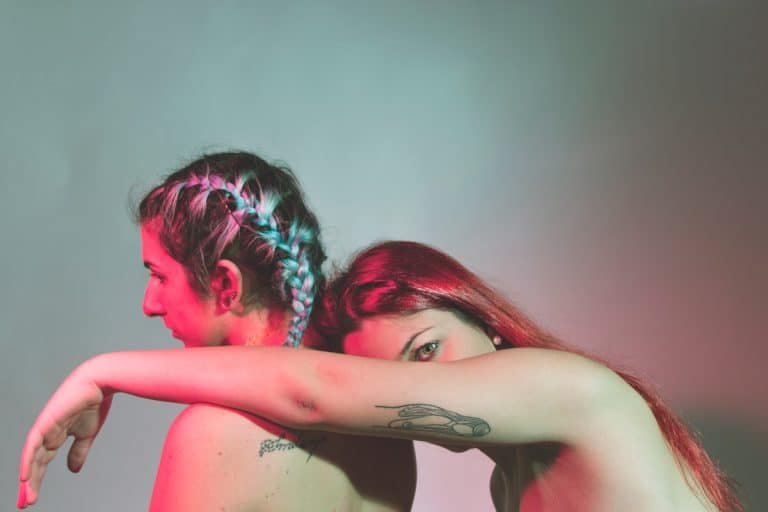We spoke to TikTok user Jordan Scott about his viral ‘I ain’t ever seen two pretty best friends’ video
‘I ain’t ever seen two pretty best friends, it’s always one of ‘em gotta be ugly’—this is the phrase that has been all over TikTok for the last month, consuming the platform completely. But where does it come from, what does it mean, and why did it become so popular?
If you have no idea what I’m talking about, this chaotic quote is from a viral TikTok video originally created by model and college student Jordan Scott, also known as @jayrscottyy on the video-sharing app, who posted it last month. In it, Scott sits in his car and states that he has never seen two pretty best friends—from his experience, one ‘always’ has to be ugly. For some reason, this particular statement has turned into a viral meme.
@jayrscottyy why y’all never choose another equal to be y’all best friend?? I hate when the ugly one call the pretty 1 “twin” if ur best friend bad as u tag her rn
Speaking to Screen Shot, when asked about the inspiration behind his video, Scott asked back: “Have you ever seen two pretty best friends? I haven’t haha.” Since posting this video, Scott has amassed a following of over 1.2 million on the platform, and is even releasing official merch in December.
“I look at my past and just reflect on real life situations that happen to everyday people,” Scott explains. His other videos are all of a similar manner and are just as popular: he sits in his car and bestows his wisdom upon us, be it relationship advice, guidance on women to his male followers, or just his personal thoughts.
@jayrscottyyWait… what???!!!
@jayrscottyySometimes it be like that 😂😭😭😭 #fyp
Some examples of these include statements like ‘one thing about a pretty female is she always gonna snore’, ‘If she got an ‘A’ in her name, she fasho crazy, and let’s not talk about if she got 2 As in her name’, or ‘she could hit me with a car, and I would still mess with her’.
Understandably, despite his growing popularity, some of Scott’s videos have caused great controversy on TikTok, with a swarm of users accusing him of misogyny. The caption of his viral video reads “why y’all never choose another equal to be y’all best friend?? I hate when the ugly one call the pretty 1 ‘twin’.” There is, of course, a lot that can be seen as troublesome here: first of all, he creates a narrative in which a woman’s beauty is decided upon by men, forgetting that beauty is subjective.
Claiming that women choose their friends based on their looks presents them as superficial and petty, which reinforces the false and inaccurate trope that women have been distancing themselves from for years (and don’t even get me started on the choice of the word ‘equal’ here). This presents a very narrow and one-dimensional view of women, one completely reinforced by the male gaze and toxic heteronormativity.
When asked about how he feels about people accusing him of misogyny, Scott told Screen Shot, “I don’t pay attention to what people say. People always are going to have an opinion on what I do or say not knowing the reasons behind my thoughts.”
Scott isn’t the first male TikTok creator to go viral for sharing his advice and thoughts on women and relationships. He is part of a much bigger online subculture, known as ‘straight TikTok’, or as I like to call it, ‘straight boy TikTok’. This part of the TikTok community is often characterised by cringe posts made by straight men about women, many of which have since become the subject of viral memes.
@mr.gatsbyyThis WOULD be happening every morning… #mrgatsbyy #fyp
Some straight boy TikTok videos such as Scott’s are considered to be on the more innocent and humorous side—the majority of his viewers either get a good laugh out of them, or actually claim to gain solid advice, with his primary aim being to help people by sharing his own experiences. However, some creators categorised under the same online subculture are not met with the same warmth.
Russell Hartley is another well known TikTok creator and dating coach with over 459,000 followers on the platform, who is known for giving out often questionable dating advice on women while wearing a suit, and who has been accused of being one of the greatest misogynists on the app.
@russellhartley This one’s for the boys #everydayheroes #oops #girls #trendinggirls #egirls #duet
Of course, TikTok should be approached with a pinch of salt. Meme culture can be really random, and it is therefore often difficult to explain why things go so viral in the first place. In Scott’s case, we can sit back, and continue watching him search for two pretty best friends.





